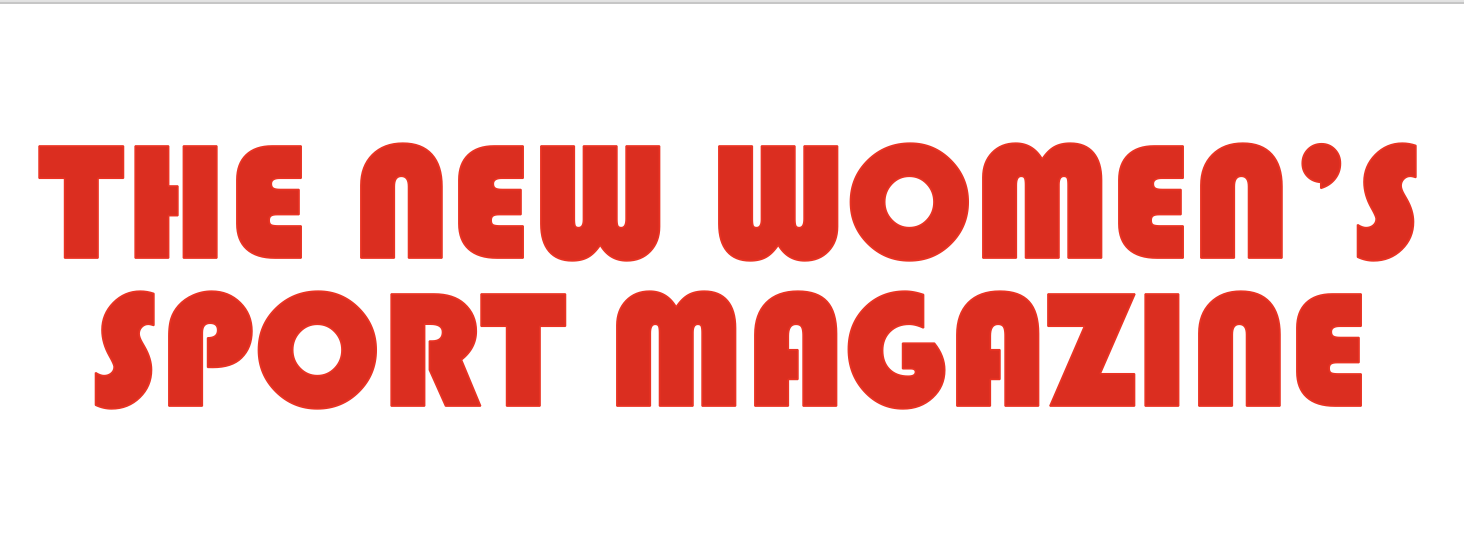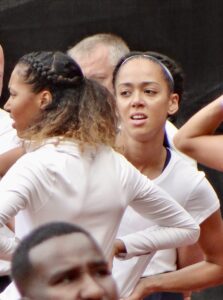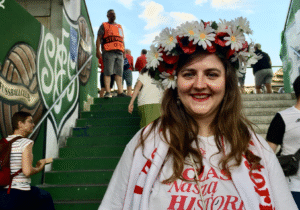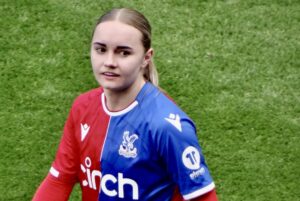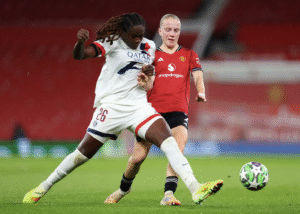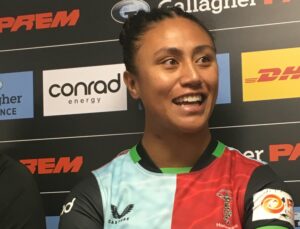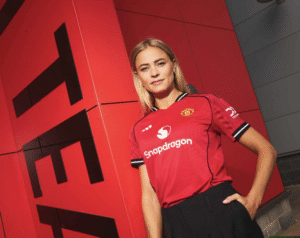PITCH BATTLE – Play On!
The latest play from Philip Catherwood – ‘The Pitch’ – is centred on the battle for a football pitch in Northern Ireland, stars three young actors and is coming to south London and Belfast. But as with most sporting dramas, it’s really about so much more…
Catherwood spoke to Helen M Jerome about the genesis of the play, the intersection of live theatre and live sport, and how introducing a crucial female character made it work.
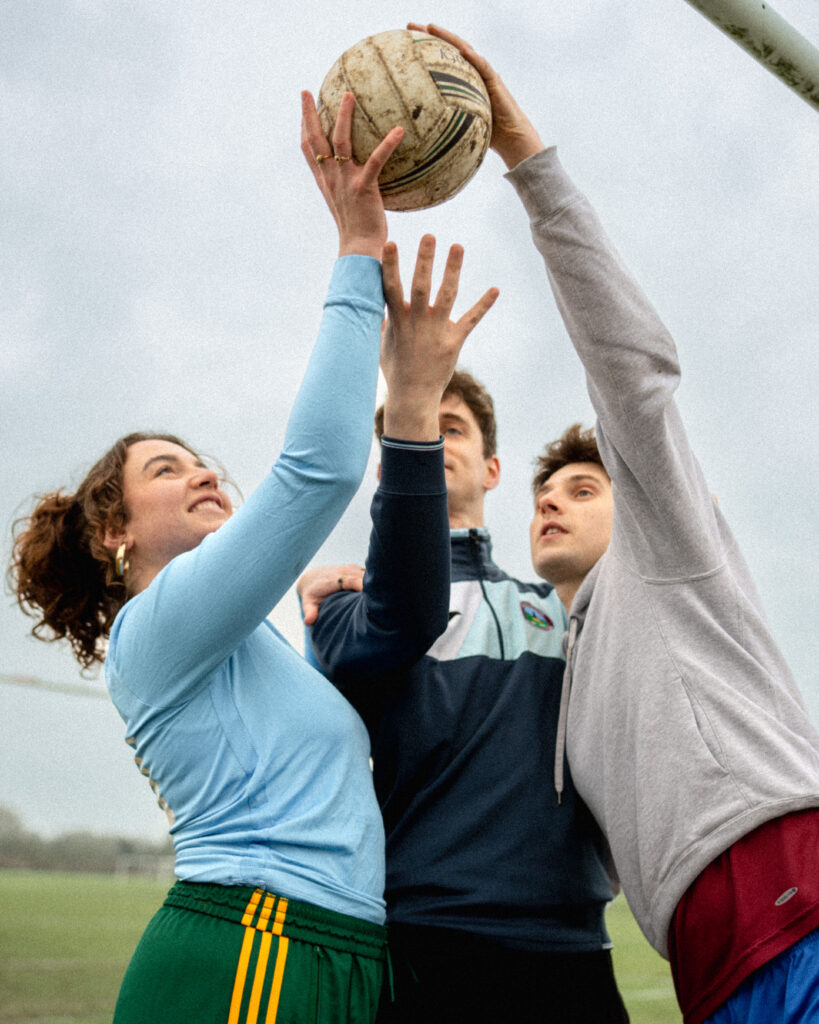
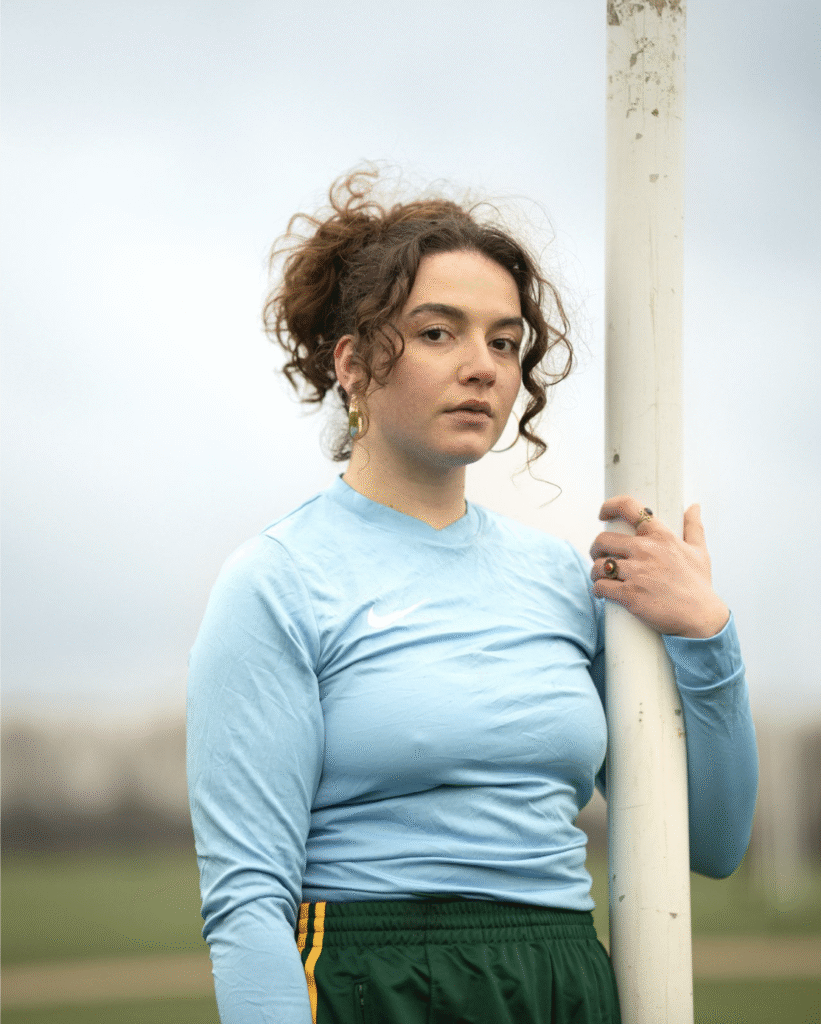
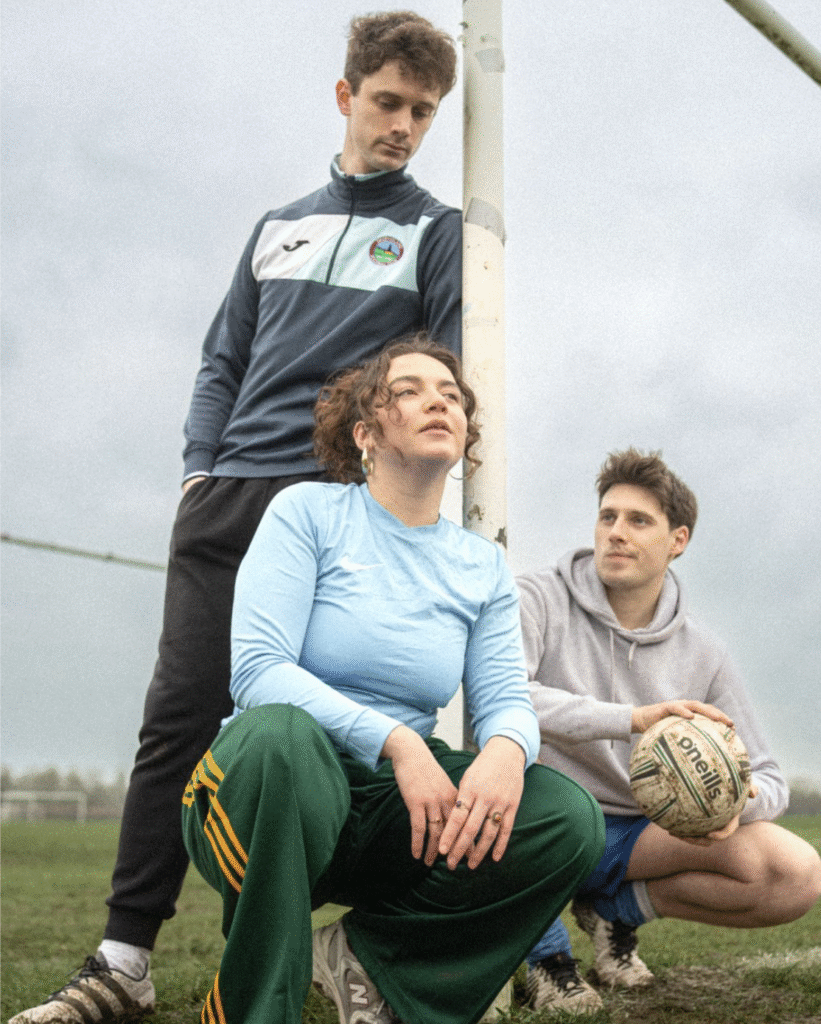
You now have a strong, central female role with Dión Di Maio as Melissa, how did this evolve?
Melissa starts out as a soccer player, a football player, who gets into Gaelic football as the play progresses. That was always the idea, because my play is about one guy who plays soccer, football, and one who plays Gaelic football, and them being at odds throughout the whole play and always giving each other banter. Then I knew I wanted someone who actually started playing one against the other.
This started as a 10-minute short play at Theatre 503, which is nice because we’re going back there to where it all started. It was a new writing night where two male characters, Robbie and Deren, meet on the pitch where the play is set.
Then I started expanding it and knew I wanted to add an extra, female character to have the angle of women in sports. I wanted it to be a family character so she’s Robbie’s little sister and they’re both from a unionist background in Belfast, so it was interesting exploring that aspect.
How did that change the energy and dynamics between the characters when you put that new person in, moving it up from 10 minutes?
In terms of the dynamics between them, you have the two fellas with very opposing viewpoints, then you have Melissa, who is not tied to any of them, even though she’s family, she’s very much in the middle, and that’s highlighted in the fact that she starts playing Gaelic football from soccer.
It’s a highly political play as well. She represents a younger generation, especially in Belfast, who are growing up, and don’t really have heavy ties to a Protestant or Catholic identity.
Belfast has become much more mixed, so she represents that. She becomes friends with Darren, the Gaelic football player, and starts playing with him. And the reason I wanted to add a little sister, a lot of it’s to do with generational things to do with the Troubles. There’s a lot of mention of Robbie and Melissa’s dad, and I wanted her so we could get the family dynamic that way.
Are there many women playing or involved in Gaelic football?
Lots, and I’ll be honest, I’m much like Robbie in the play, in that I didn’t grow up with Gaelic football in Belfast and therein lies the problem.
I came from quite a heavily Unionist area and the idea is there were no Gaelic football pitches and that’s what this play’s about – them trying to build a Gaelic football pitch in East Belfast which is highly contentious with the local residents.
I’ve become quite an expert through doing this play – and a fan. What I’m finding through getting in contact with Gaelic football clubs in London, and back home in Belfast, is they’re promoting their women’s teams just as much as their men’s. They’re all as one. So I find that quite refreshing.
We made a point of visiting clubs in London and went out to their training. I made a point of going to visit the women’s teams as well, but that became difficult because you had the men’s teams training on one day, then the women’s team trained another day. I was going every day to the same club, but on different days and they were like: oh, this guy again!
I’m a massive sports fan, and I love theatre. That’s the reason I wanted to write this play, they’re two of my big passions.
If I want to go and see women playing Gaelic football, are there particular places it’s popular?
All these clubs are self-funded, amateur clubs. But there’s a dedicated London team that play in West London, in Ruislip with a dedicated stadium. And the All-Ireland Championship – where all the Counties play – have London and New York in that tournament, which I think is hilarious.
For you, what’s the importance of sport in general, and in particular in Northern Ireland?
Well, I’m a massive sports fan, and I love theatre. That’s the reason I wanted to write this play, they’re two of my big passions. When I started writing I thought there’s not enough sport in theatre… and now there seems to be an explosion like The Lost Lionesses and Dear England, so if I can be part of that wave I’d be really proud of that.
Football is my sport, so that’s why there’s a little bit of that in this play, but it’s fun researching the sport from the country I’m from and getting that on stage. There hasn’t been a Gaelic football play ever, in my opinion. There’s definitely plays that have had Gaelic football players in them, or there might be a character who plays it, but not one that solely focuses on the sport.
That’s why we’re doing this. And it’s about politics and identity through sport. So the reason I want to do that because I feel sport can bring people together.
Is it a metaphor for politics and religion, with football more Protestant, and maybe Gaelic football more Catholic?
Actually, the most famous example is Rangers and Celtic in Glasgow as the Protestant Catholic divide in soccer. It’s the same back home in Belfast. You’ve got your more Protestant, and more Catholic clubs.
There used to be a Celtic club in Belfast which got disbanded because the rivalry was so rough.
So I wouldn’t say football is a more Protestant sport, but certainly in our play it feels that way.
I want as much of a sporting audience coming as a theatre audience. Otherwise, what’s the point of doing a play about sport?
Is the female character a device to help unite these different identities through sport?
Well, a lot of it is to do with Irish identity, which is a niche area – and it’s based on a true story back home. There’s a club trying to build a Gaelic football pitch in East Belfast, a highly Unionist area, and they keep getting vandalised and attacked. They’re in temporary pitches still at the moment, and the local residents are hounding them.
So I thought that would be a really good basis for a play. It just shows that kind of conflict still exists in Belfast.
But the character of Melissa, from a younger generation, not tied to anything, has more mixed friendships from different sides of that divide. And through her character, you could say, she does unite people together just by her actions alone. I mean there’s loads of Protestants now playing Gaelic football through the likes of these clubs, so that that’s the reason why I got her involved.
What kind of audience is coming along – can you entice those who don’t normally do theatre?
Yeah, I’m super passionate about that. I made a point last year when we started out. I want as much of a sporting audience coming as a theatre audience. Otherwise, what’s the point of doing a play about sport?
That’s why it was important for us to go out to the Gaelic football clubs’ training sessions and talk to them and promote the play. I was able to see some people coming in who looked like they were players. Then one guy came in a full Gaelic football kit, top, shorts, socks, everything.
We used one of the kits from the East London club, Thomas McCurtains, in the show and whenever one of the characters came out in that kit you could hear them whispering and going yeah! And it was a good mix of male and female so our outreach worked.
Are you tempted to do more plays with sport, especially women’s sport, because that’s changing in real time, there’s a huge surge?
Absolutely, yeah. This has given me the bug to write more sporting plays. I’ve always had an idea for more of a TV show because I write screenplays as well. But I might transpose it into a play about a mixed gender football team, being at odds with each other, but having to learn to play together, which would be a really great message. It’s something I personally would like to see is more mixed gender in sports, and I know obviously there’s mixed gender in football up to a certain age and then they branch them out, in the men’s, women’s teams. I just don’t know if I’d set that back home in Belfast again or in England.
How well placed is theatre to tackle such subjects – sport, but also politics and gender topics?
That’s a big question. I think it is. I come from a film and TV background into theatre, which is usually the other way around. I’ve always felt the power of theatre in terms of tackling subjects, but also been a big believer in your audience being entertained.
You have to put something on that they want to see, and then you can put the messages in there that you’re passionate about and hopefully spark debate. That’s the place I like to write, that start conversations or just people having conversations through being entertained.
Theatre is great because you can come out straight afterwards and engage with your fellow audience members, and also the cast and creators and talk about the subject. It’s so immediate and that’s why it’s always been a really great art form, and something I’m still learning about all the time. And I got the bug for it ever since I started working in theatre.
If you’re a sports fan, you should definitely come see it. If you’re a fan of political messages in theatre that drive change, then you should come see it as well.
Why should people come to see The Pitch?
I think there’s a lot in this play to do with Irish identity, gender in sport, and how sport can bring people together, but also I think it’s a really fun play about sport in general.
If you’re a sports fan, you should definitely come see it. If you’re a fan of political messages in theatre that drive change, then you should come see it as well.
See ‘The Pitch’ from 26-27 September at Theatre503 in Clapham https://theatre503.com/whats-on/the-pitch/
and at the Lyric Theatre, Belfast from October 2-4 https://lyrictheatre.co.uk/whats-on/the-pitch

